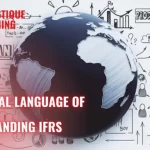Banks and financial institutions play a major role in the development of modern society. It is important to understand the services banks provide, and how these can benefit personal and private clients.
Financial intermediation has become a crucial factor within the banking industry. Financial intermediaries are the link between investors and borrowers. They provide information and advice to both parties to ensure they can reach a mutually beneficial agreement. They work with the client to discuss financial options and assess risks associated with various decisions.
Banking services are vast and range in complexity. They offer simple services such as saving accounts and depositing funds and more complicated services such as stock management and credit analysis. Financial intermediaries must be competent in these areas to advise clients better. They can analyse purchasing trends and credit scores to guide clients on the most suitable financial options.
It is important to examine financial instruments and develop a thorough understanding of financial markets, including bonds, stocks, and swap markets, for successful intermediation.
Upon completion of this course, participants will be able to:
- Understand the vitality of financial intermediation in banking.
- Assess the roles and responsibilities of a financial intermediary.
- Weigh the advantages and disadvantages of utilising financial intermediation for financial transactions.
- Implement effective risk management and mitigation for banking transactions.
- Provide recommendations and guidance on appropriate banking services to clients.
- Evaluate a bank’s income statement, balance sheet and other relevant documents.
- Examine credit risks to make safe lending decisions.
- Utilise financial instruments and methods to ensure profit.
This course is designed for anyone in banking who works with financial intermediaries to secure financial transactions. It would be most beneficial for:
- Financial Intermediaries
- Banking Managers
- Finance Managers
- Risk Analysts
- Financial Advisors
- Credit Analysts
- Regulatory Compliance Officers
- Investment Managers
This course uses a variety of adult learning styles to aid full understanding and comprehension. Participants will review the balance sheets and income statements of established organisations to highlight key factors that would indicate financial success and challenges.
They will be provided with all the tools required to partake effectively in the arranged learning exercises. By analysing their examples, combined with seminars, group discussions and group activities, participants will have ample opportunities to develop a full and comprehensive understanding of the taught content. They can utilise their new knowledge to create balance and income documents relating to their personal roles.
Day 5 of each course is reserved for a Q&A session, which may occur off-site. For 10-day courses, this also applies to day 10
Section 1: Introduction to the Monetary Financial System
- Describe what the monetary-financial system is and what its role is in banking.
- Defining financial intermediation.
- The roles and responsibilities of a financial intermediary.
- How financial intermediation is entwined with banking services.
- The types of financial instruments are bonds, stocks, loans, bank deposits, and exchange-traded funds.
- Understanding the different financial markets.
Section 2: Banking Services
- How banking varies depending on personal or business clients.
- The concepts, principles, and processes of various payment services.
- Ensuring banking services are accessible to all potential users.
- Saving, deposits and investments.
- Building trust with private banking clients and using intermediaries for wealth management.
- Considerations and influences of international trade.
Section 3: Balance Sheets and Income Statements
- Defining central banks and their role in the finance industry.
- The importance of balance sheets, off-balance sheets and income statements.
- What information must be included in these records?
- Comprehending international regulations of banking.
- Assets and liabilities associated with banking and financial intermediation.
- Effectively balancing capital adequacy.
Section 4: Providing Credit
- Different types of finances and their role – assets, international trade and working capital.
- Methods and programs utilised to analyse credit.
- Establishing criteria for clients who wish to access credit.
- Using credit data to assess credit applications.
- Understanding the risk of providing credit and the bank’s risk-return trade-off.
- How financial intermediaries contribute to collecting and analysing credit data.
Section 5: The Evolution of Finance
- Significant events that greatly impacted banking standards – the financial crisis.
- The consequences of the financial crisis.
- Implementing derivatives through financial intermediaries to protect all parties during transactions.
- Utilising the confidence function to manage risks.
Upon successful completion of this training course, delegates will be awarded a Holistique Training Certificate of Completion. For those who attend and complete the online training course, a Holistique Training e-Certificate will be provided.
Holistique Training Certificates are accredited by the British Assessment Council (BAC) and The CPD Certification Service (CPD), and are certified under ISO 9001, ISO 21001, and ISO 29993 standards.
CPD credits for this course are granted by our Certificates and will be reflected on the Holistique Training Certificate of Completion. In accordance with the standards of The CPD Certification Service, one CPD credit is awarded per hour of course attendance. A maximum of 50 CPD credits can be claimed for any single course we currently offer.
- Course Code IND12-111
- Course Format Online, Classroom,
- Duration 5 days














